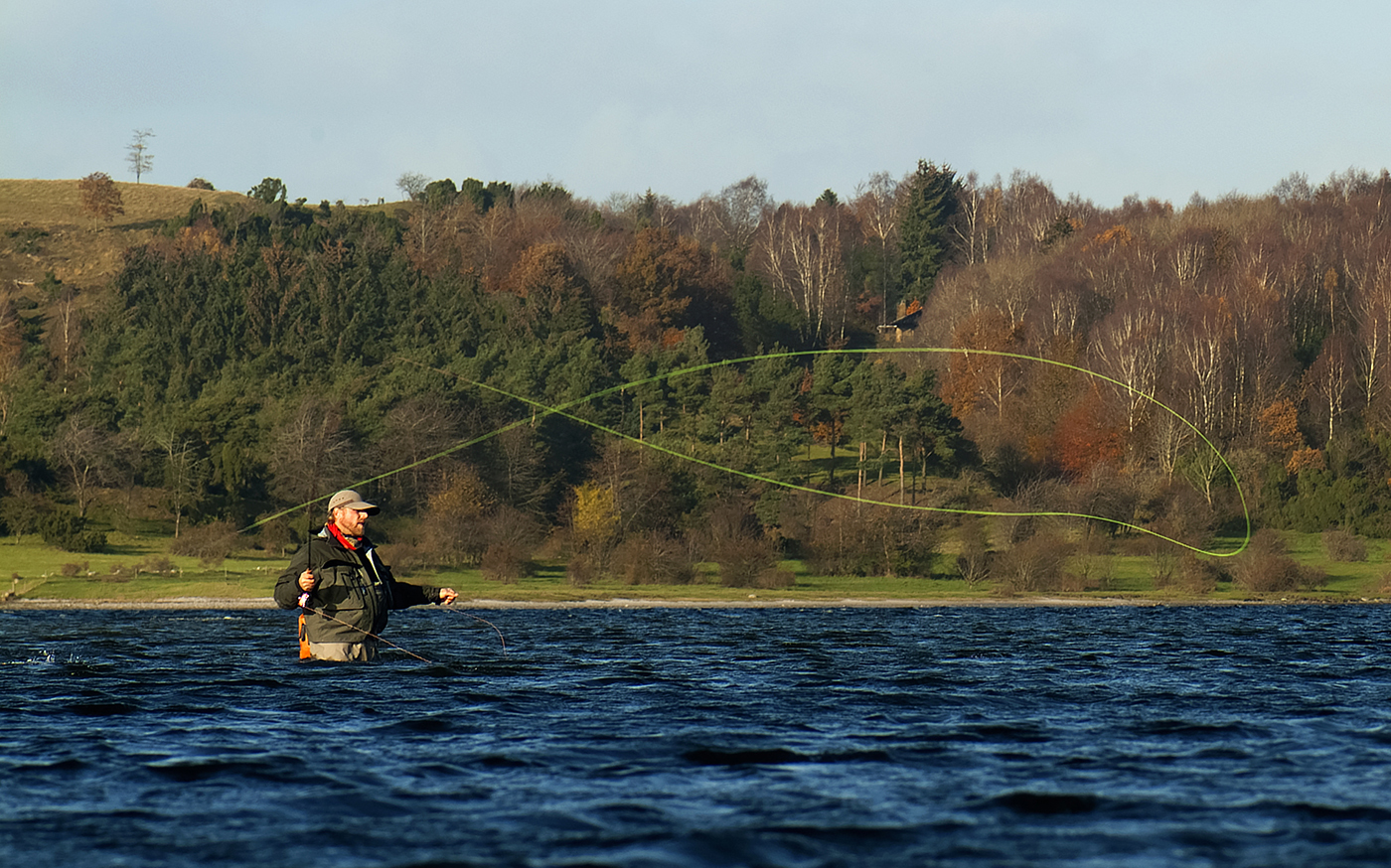
It’s autumn, October, and sea trout this time of year can be very picky and difficult to catch. Fishing can be frustrating, since the fish will often hang around for a long time – often completely uninterested in any offerrings.

The are many ways to go about this, but I find that frequent changes of flies often work. It’s impossible to know if the fish will react to something minute and natural looking, something hot pink and big, a sand eel imitation fished really fast or…

And sometimes it’s something different, and sometimes I’ve found that the colours of the autumn trout (brown, orange, yellows – the colours of the fish getting ready to run up river to spawn) work well. Since there’s really nothing in the sea that has these colours naturally, I think pattern matters less than the colours.
A palmer fly is a good choice, especially for slow retrieves and a streamer or a wet fly can be the right choice if you’re after something that’s better suited for a fast retrieve, or a fly that sinks a little faster than an often bushy palmer. Once again, it’s the combination of the colours and the way you with to fish that should dictate your fly style.
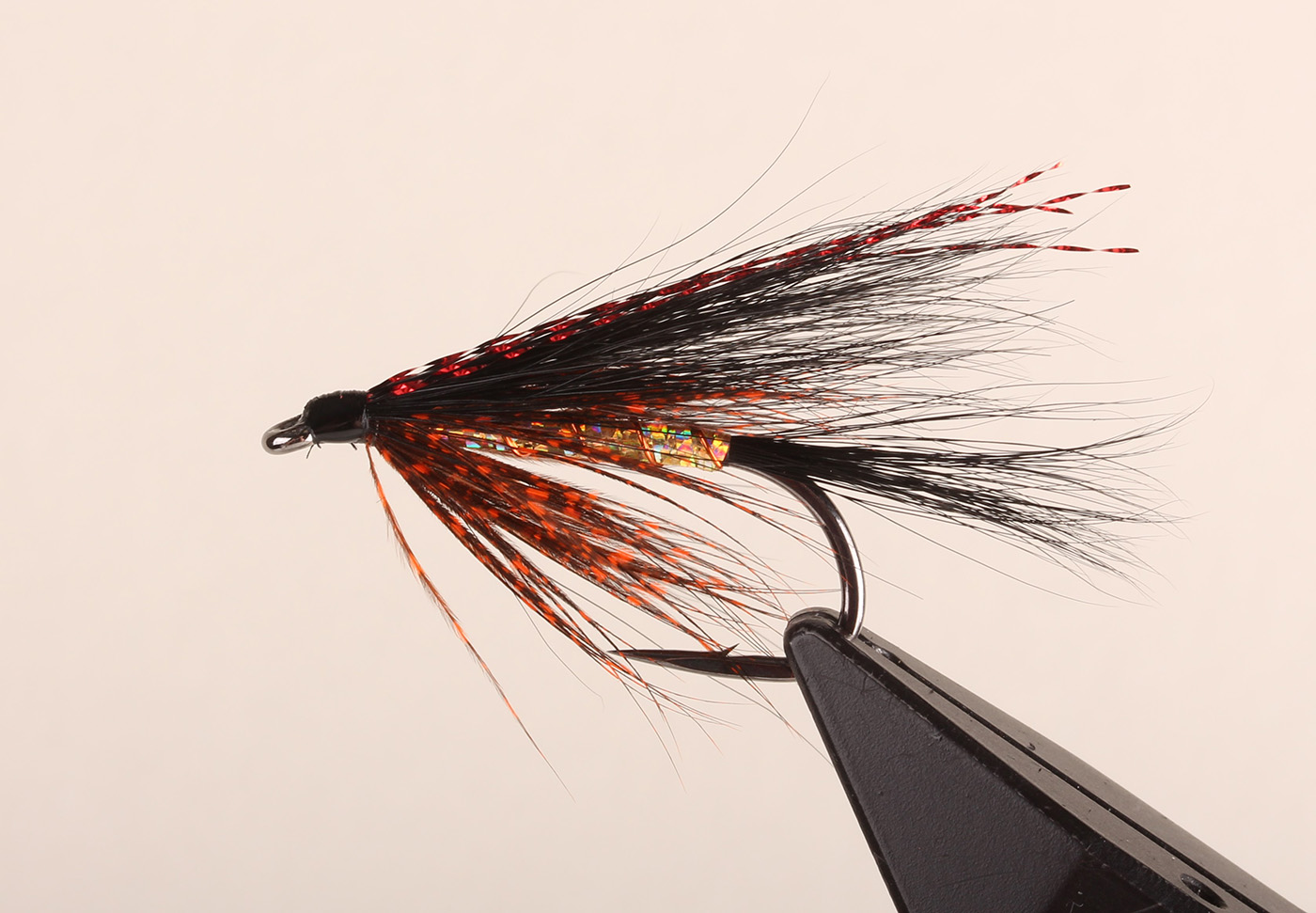
This lovely wet fly, tied by Håkan Karsnäser, has the colours (gold, red, orange, brown) and is well at home in the salt as well as in the rivers, should you feel like swinging a wet for a big, old grumpy brown trout. It’s a relative simple fly to tie, and it’s extremely durable.
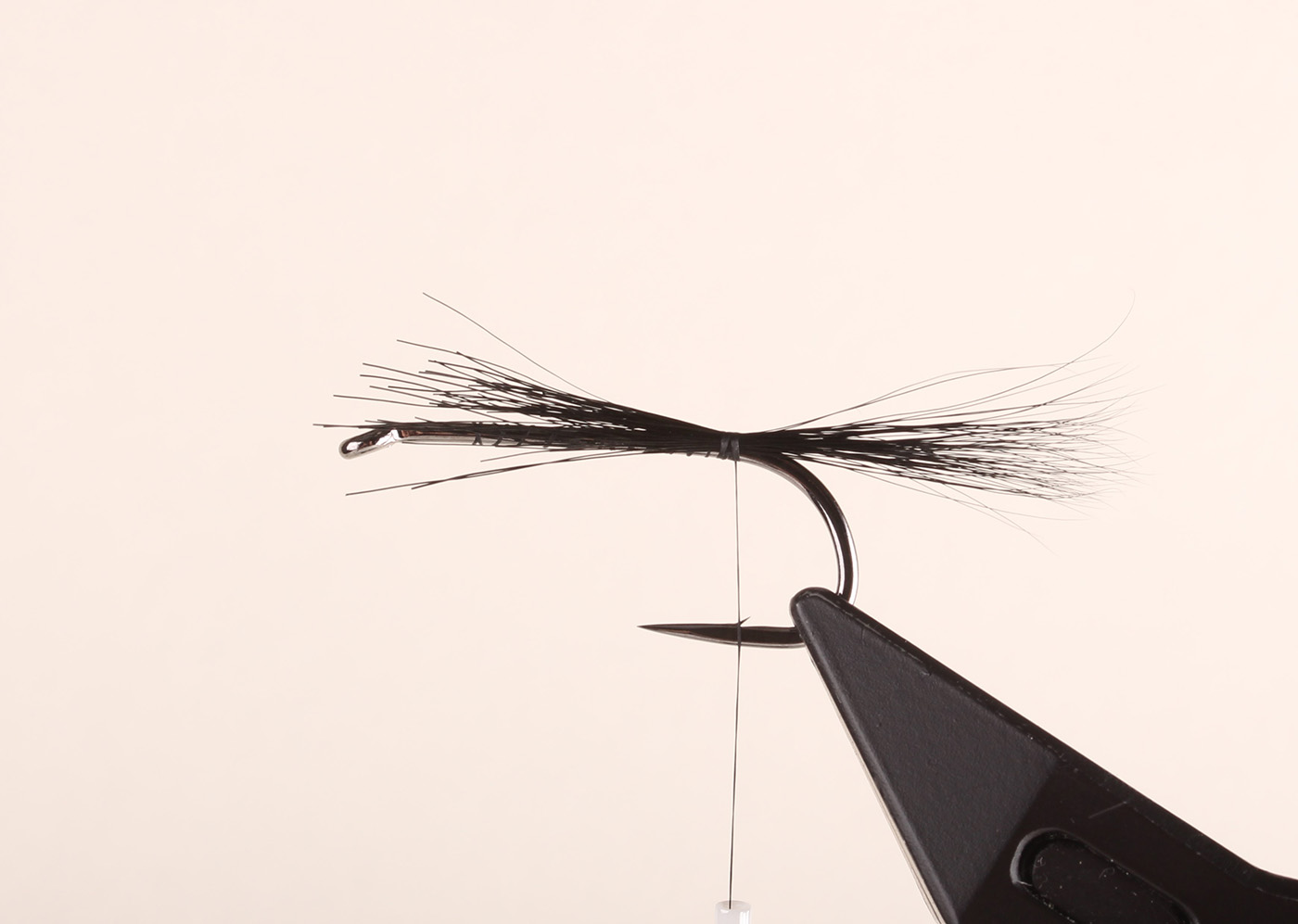
Lay down a layer of black thread and catch in the tail with a few turns of thread right at the bend.
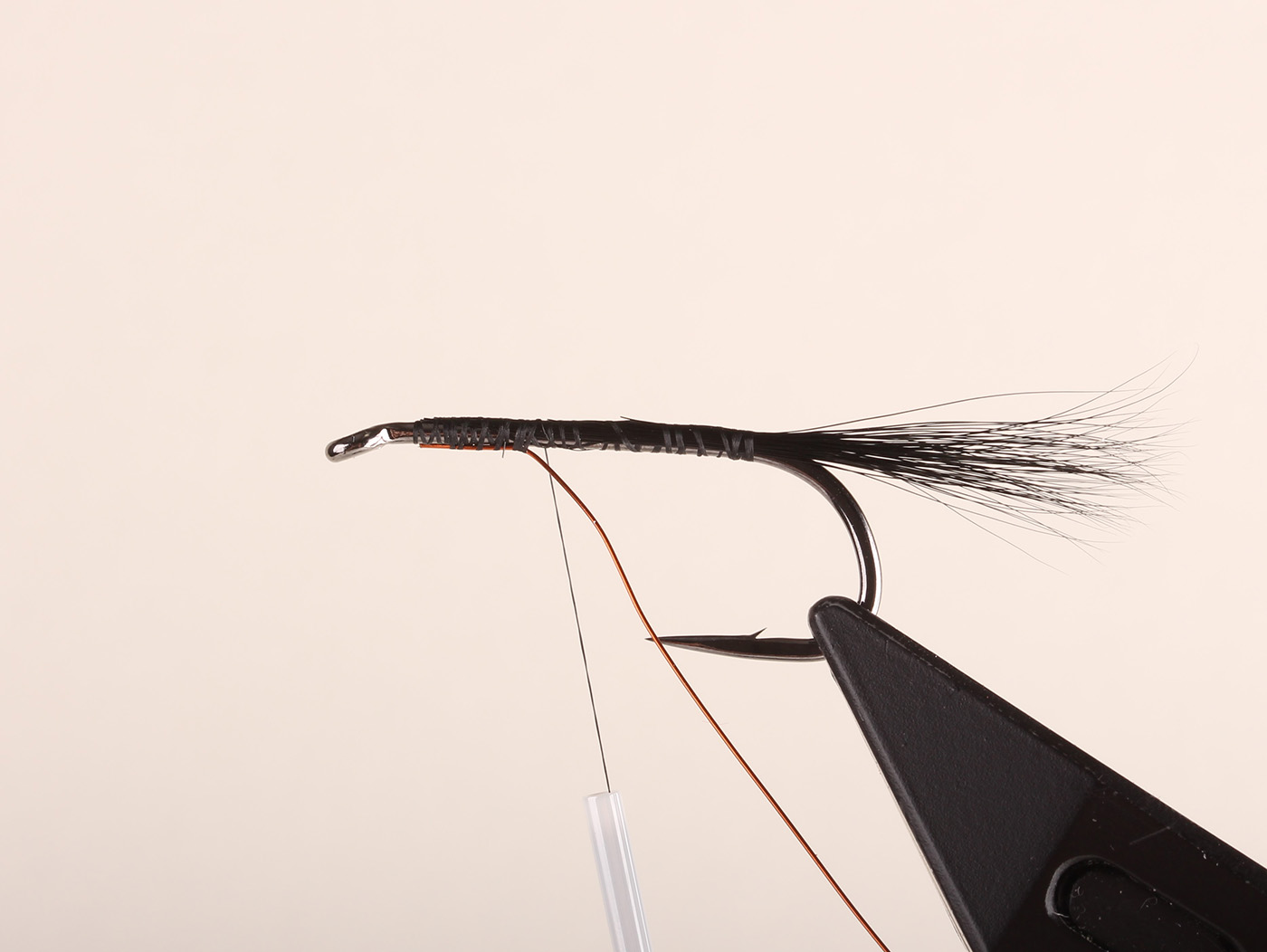
With tight turns, secure the tail to the shank and cut off a head length behind the eye. This creates an even underbody for the flat, gold tinsel. Tie in the wire and secure as you return the thread to the hook bend.
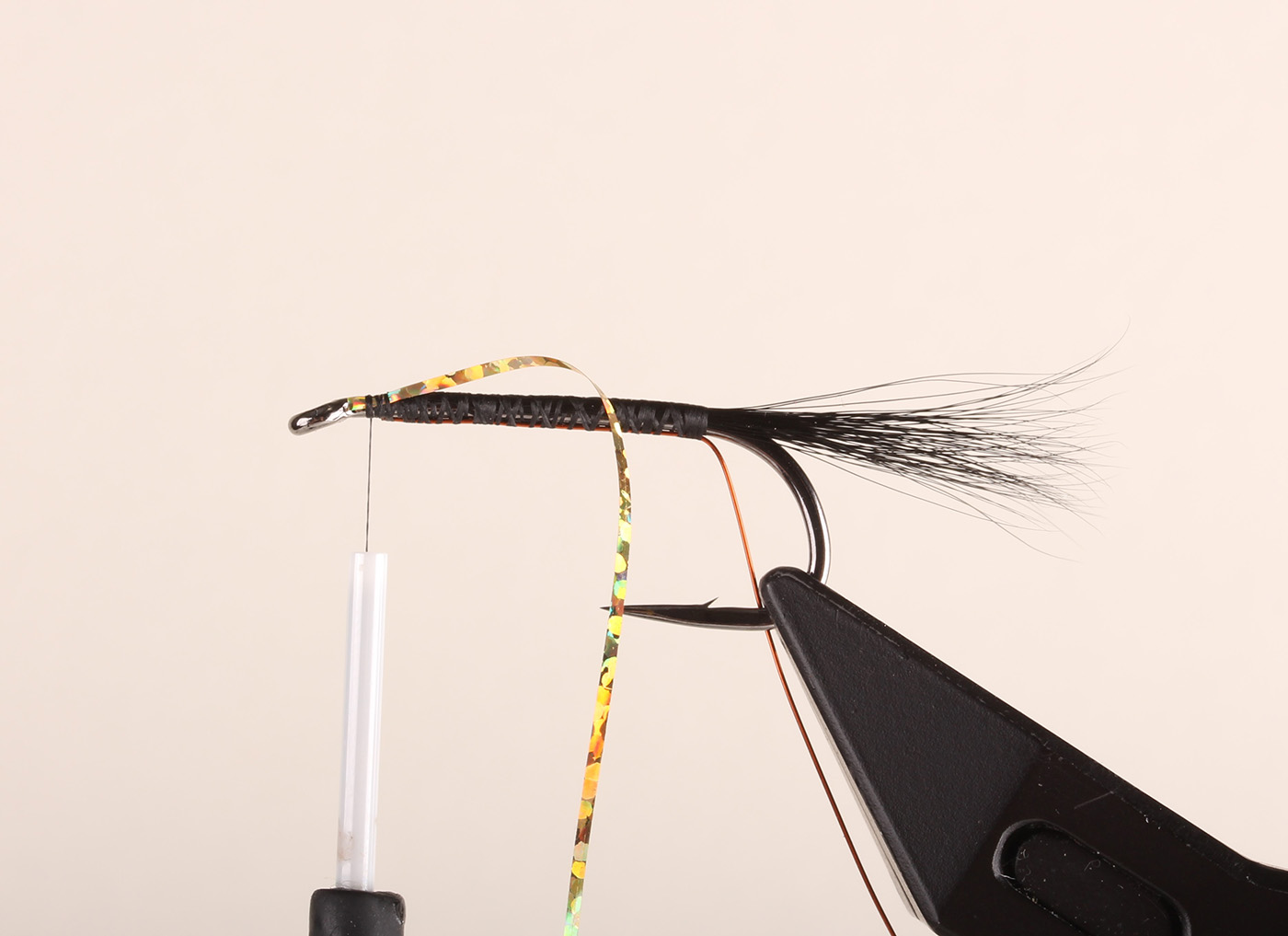
Return the thread to the hook eye and tie down the flat tinsel with a few tight turns.
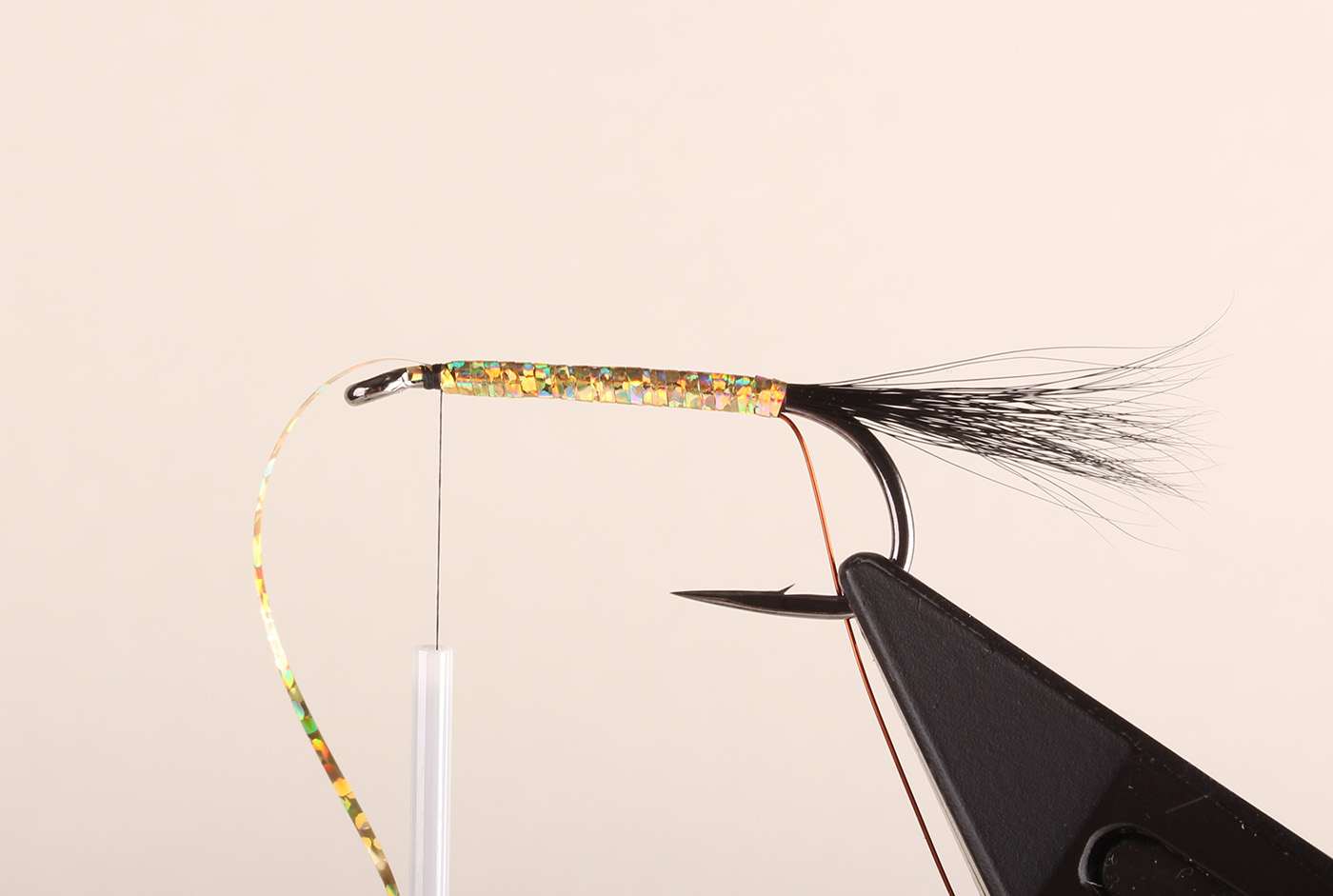
In touching turns, make a double layer with the flat tinsel, finishing at the eye and tie off with a few tight turns.
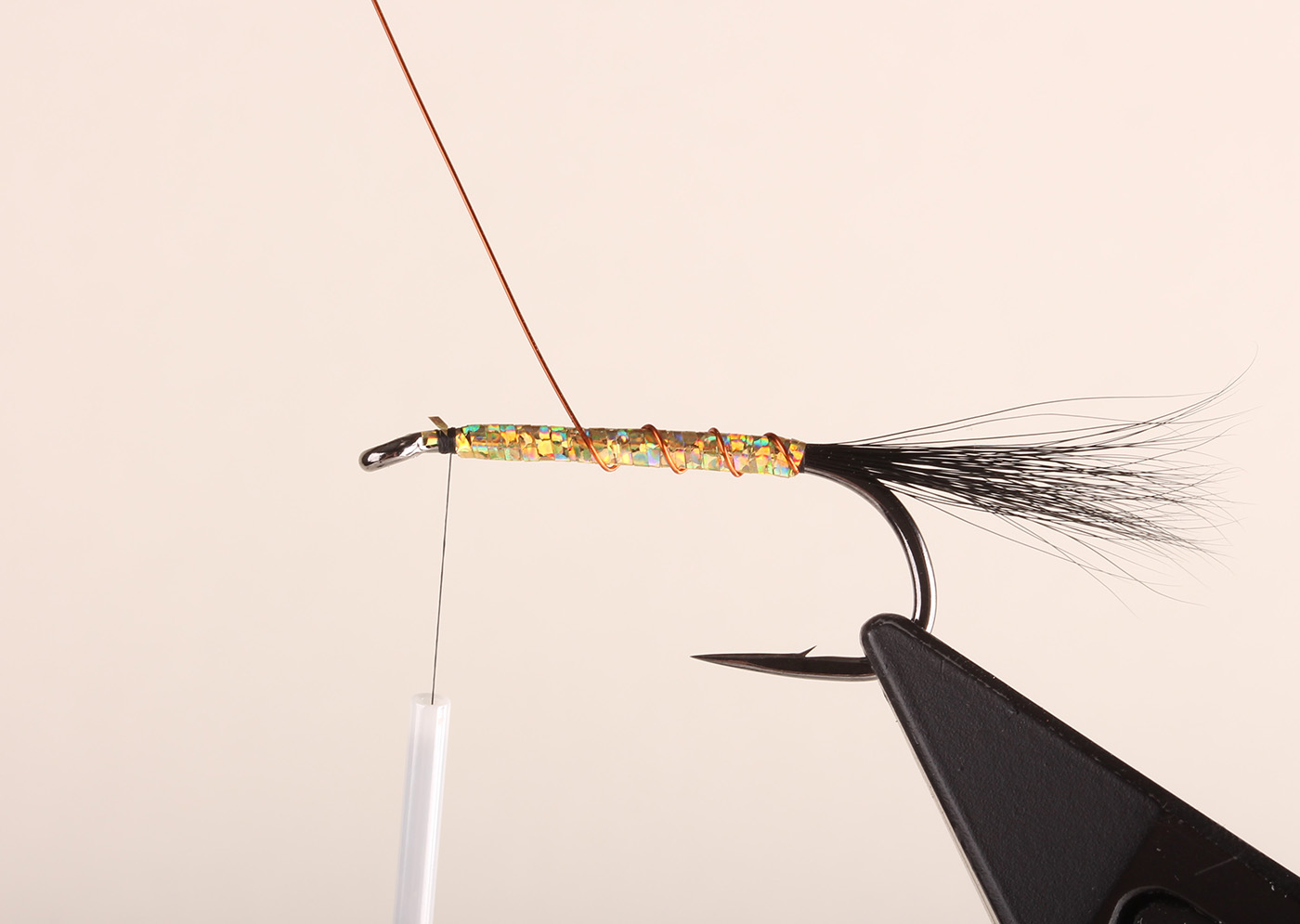
Wind the tinsel in even turns toward the eye and finish on the side of the shank and cut off the waste.
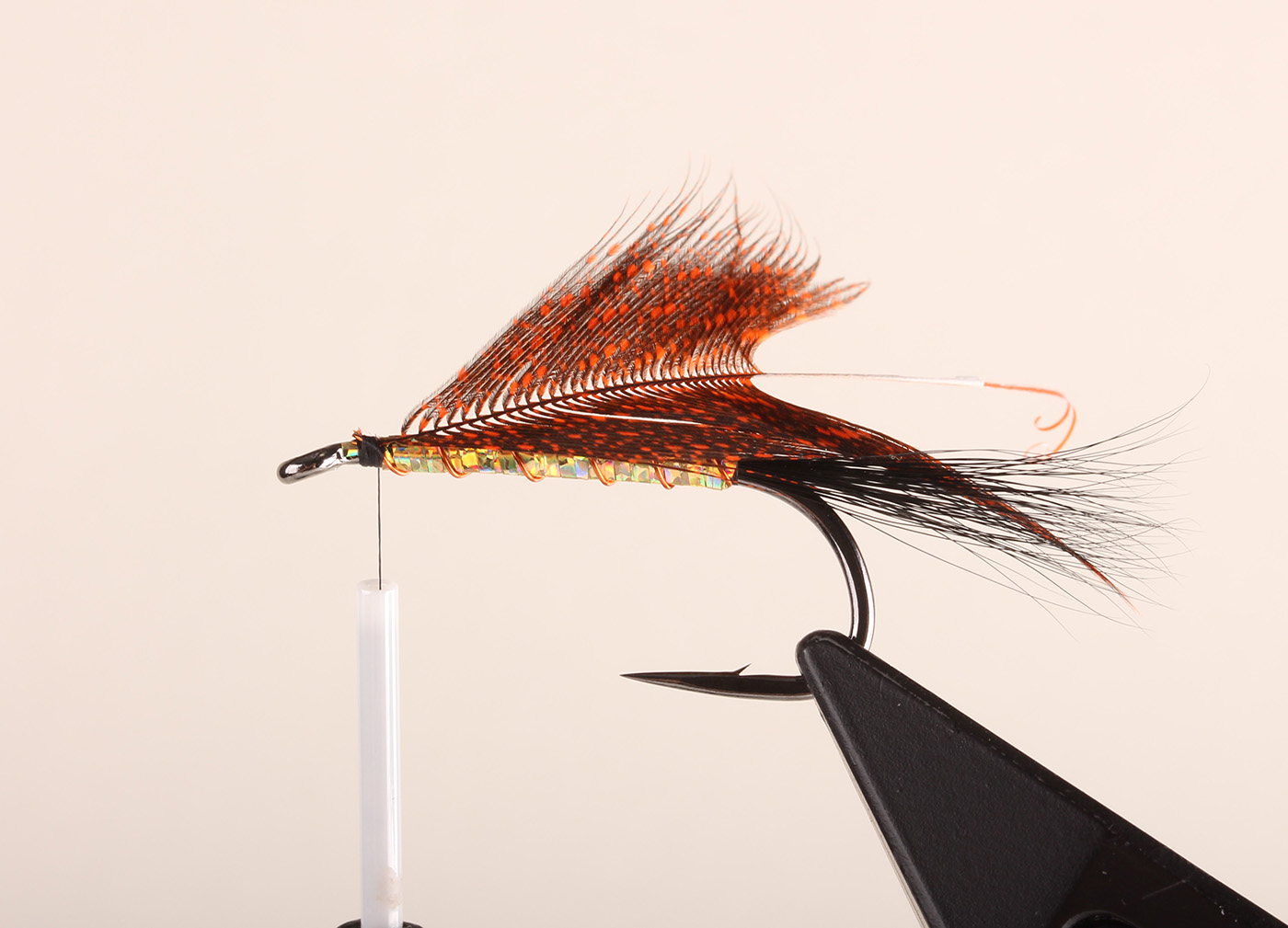
Prepare a small orange dyed guinea fowl feather and tie in by the tip.
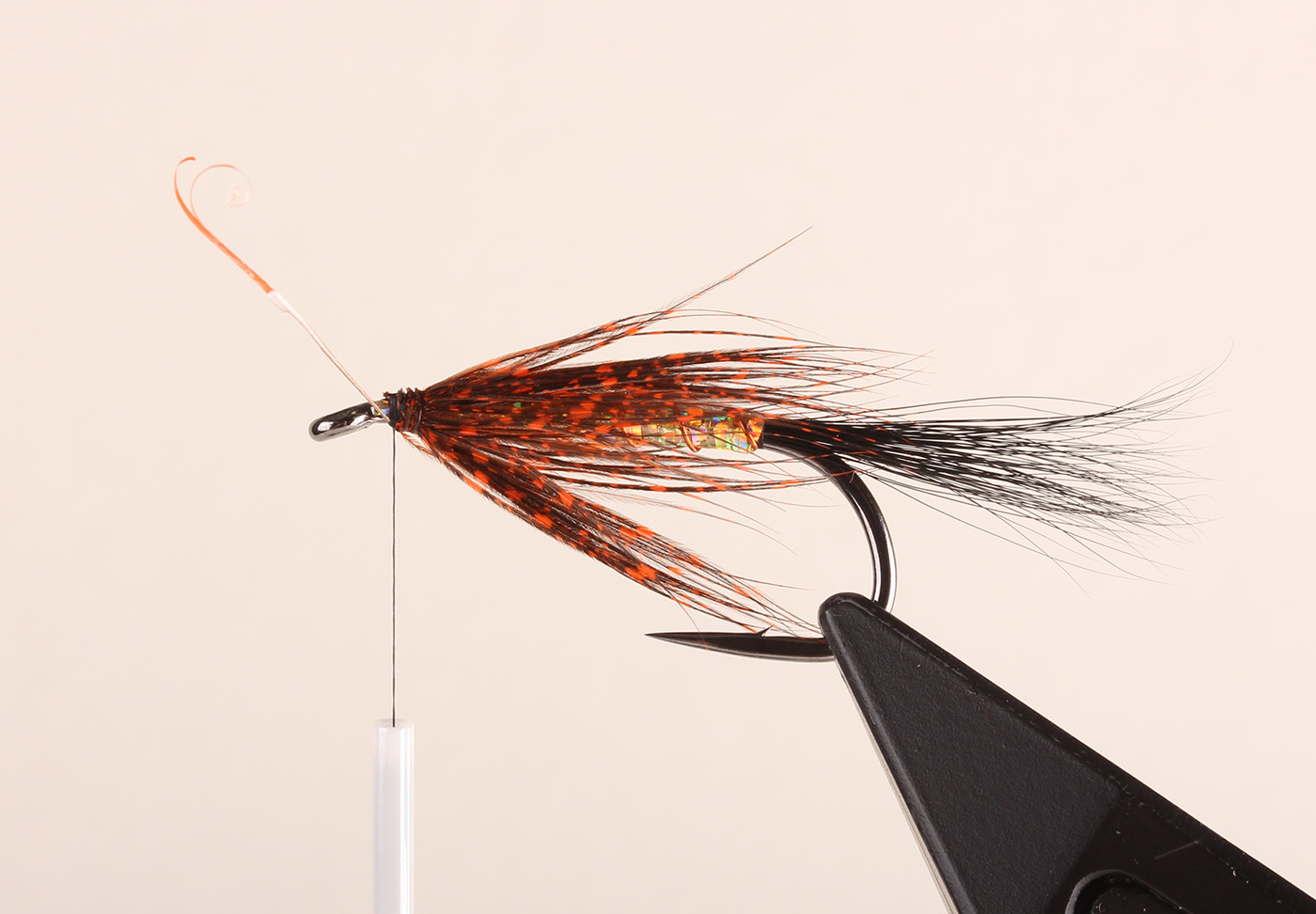
Turn the hackle and with a few turns of thread, secure the hackle fibres on the sides and underneath the hook to make room for the wing.
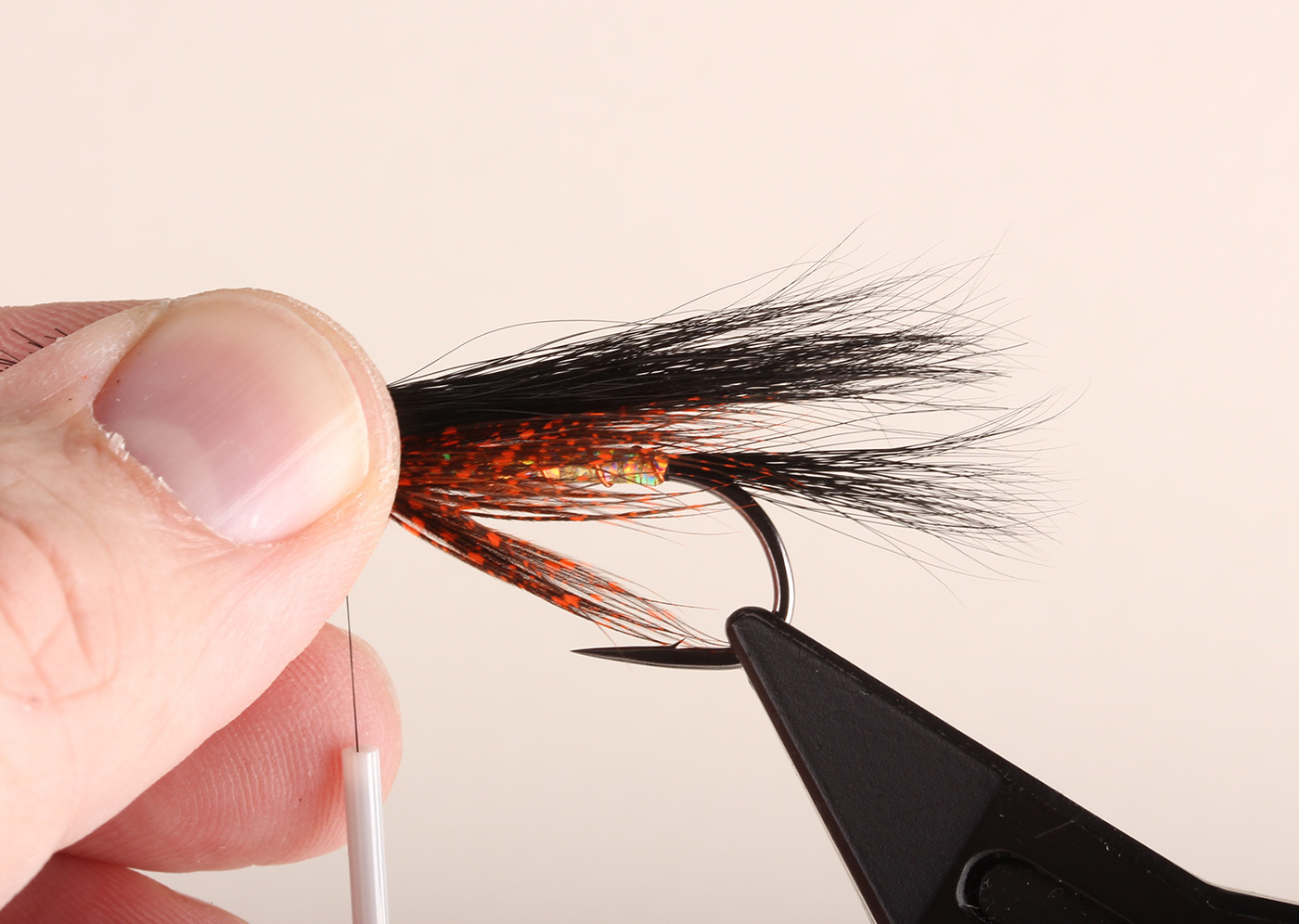
Cut off a small bunch of hair and measure them against the fly. The should reach to the end of the tail.
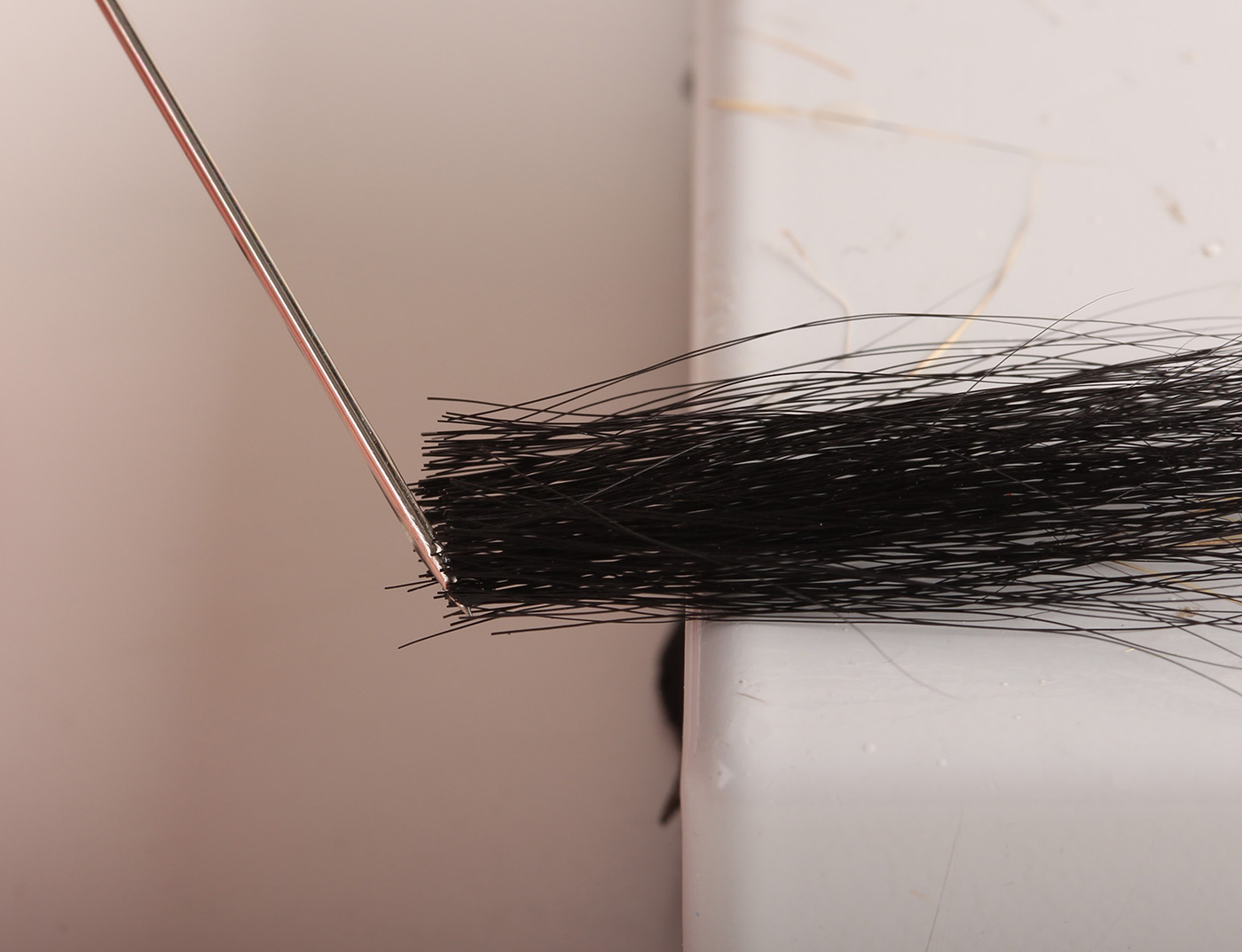
Add a small drop of varnish to cut ends of the wing. Squirrel is very slippery and this makes sure the wings is well secured.
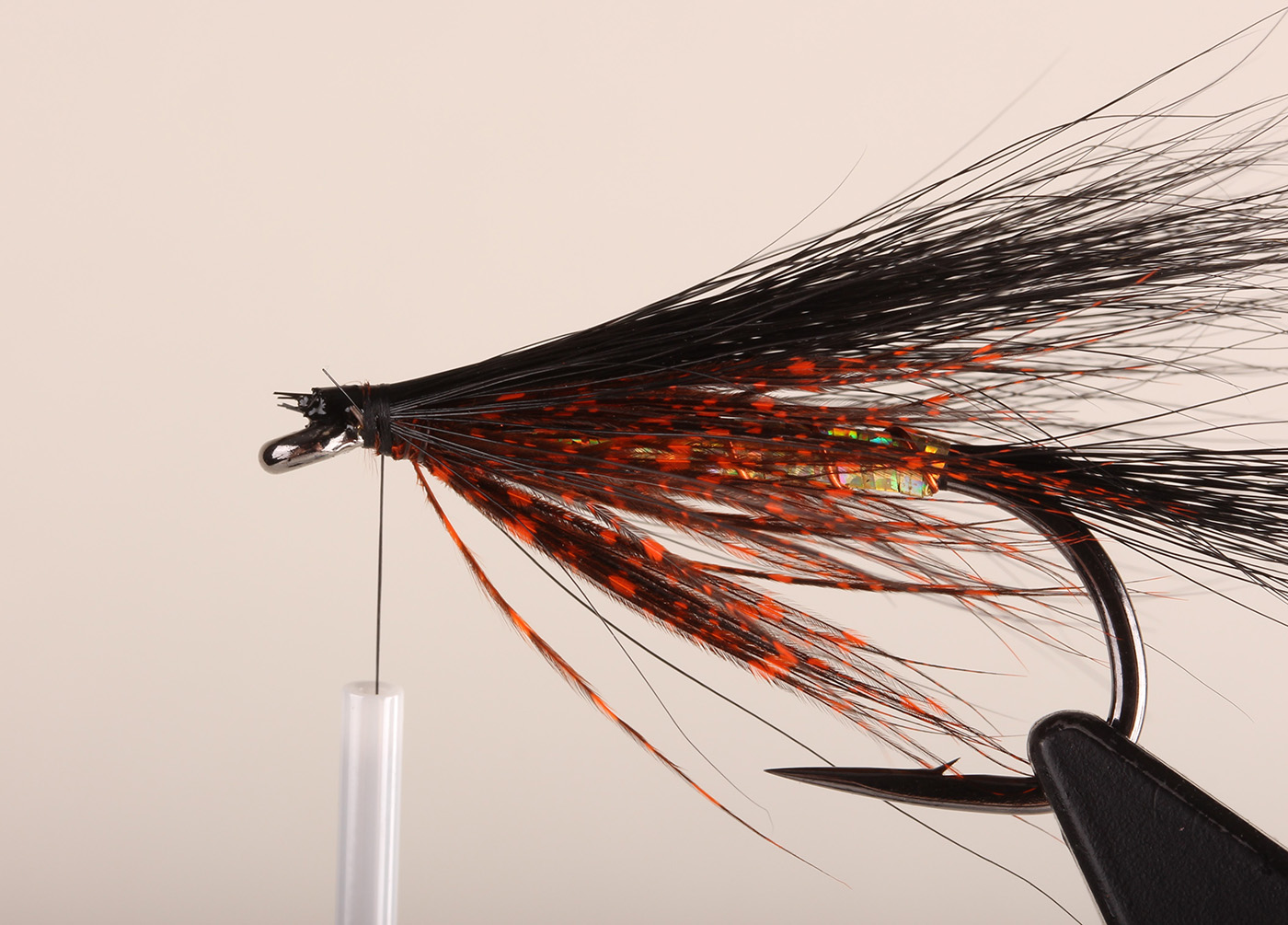
Tie down on top of the hook shank with tight turns of thread.
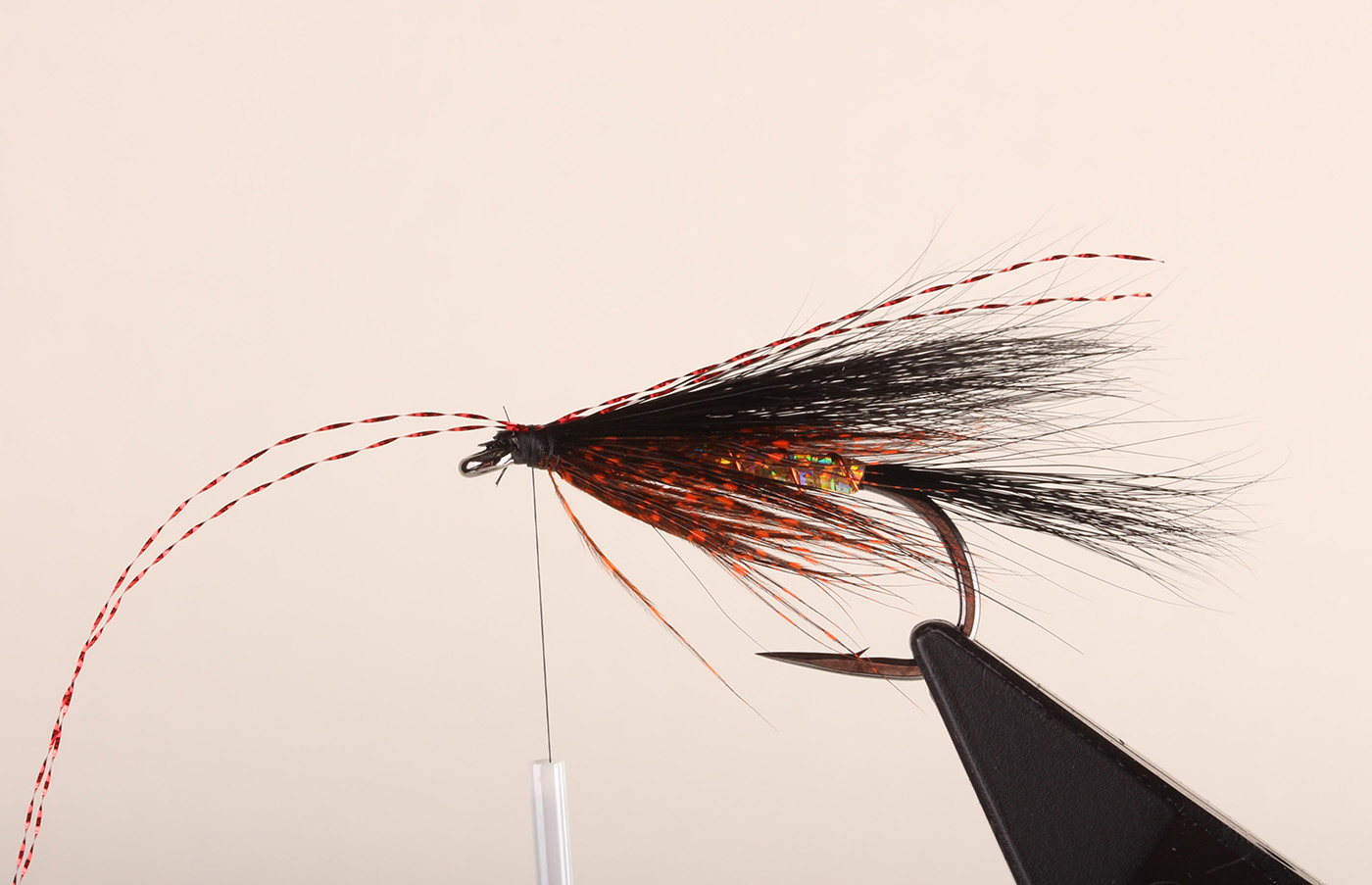
Lift two strand of red flash up under the last turn of thread, fold back and secure with an extra turn.
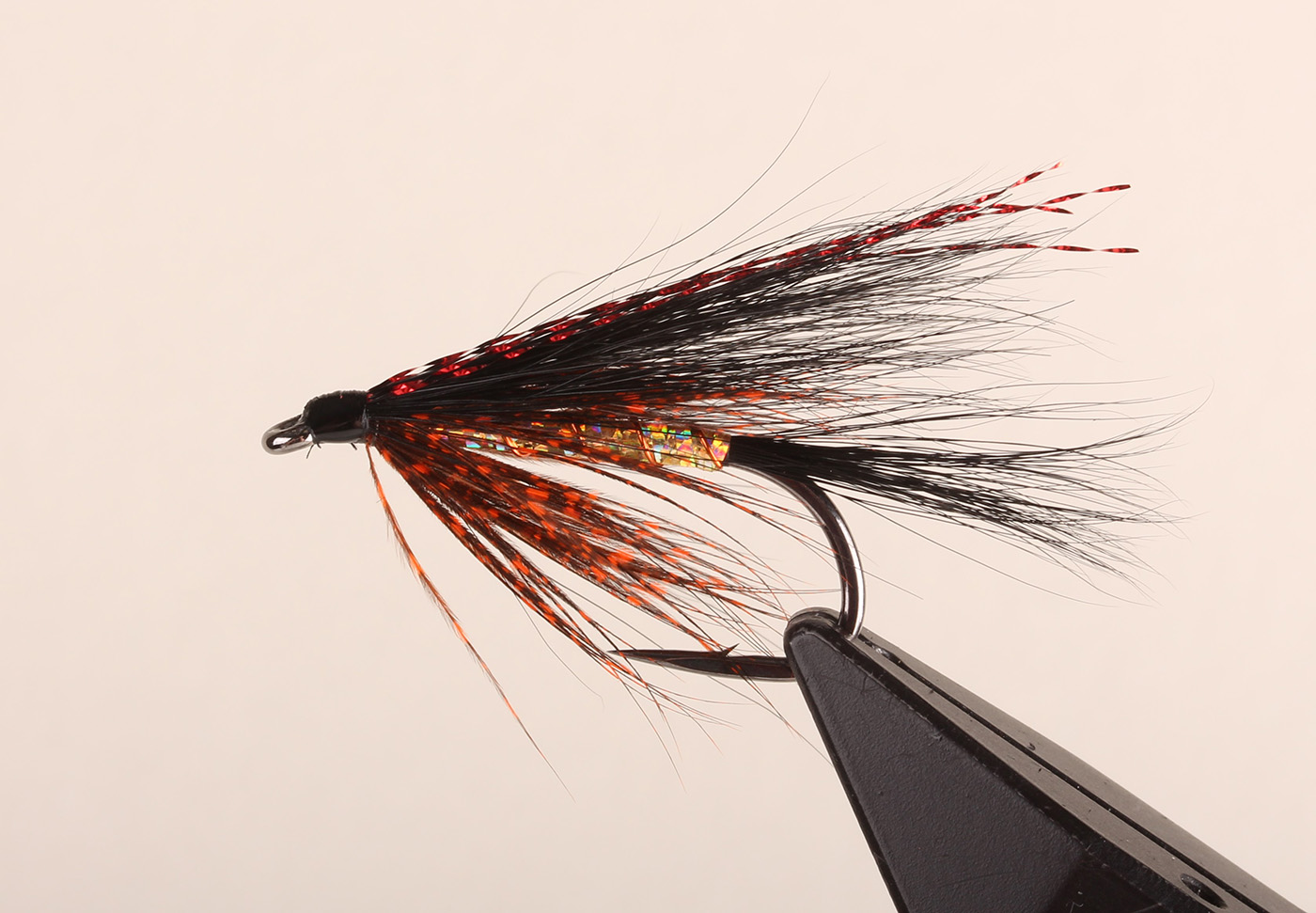
Form a neat head and varnish – finished fly.
Pattern
Hook: FW 580 or NS 115.
Thread: Black 8/0 or 6/0.
Tail: Brown squirrel.
Rib: Copper wire.
Body: Gold holographic tinsel.
Hackle: Orange dyed guinea fowl.
Wing: Brown squirrel and red Crystal Flash.
This fly is easy to adapt in any colours you desire.
Happy tying
